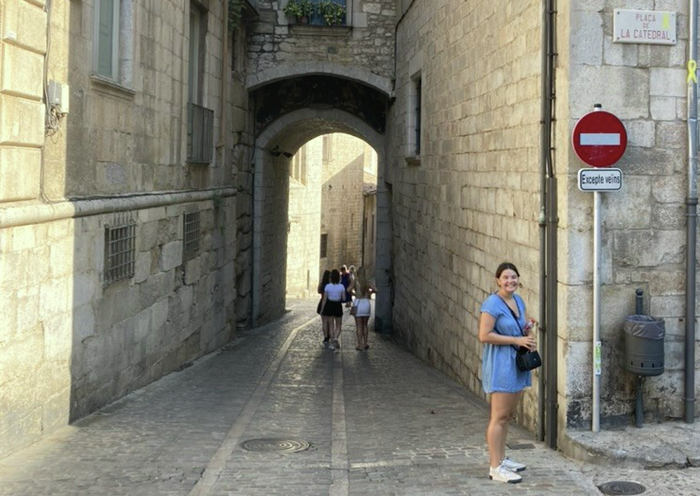Making and marking time in Cambridge
Isabella Bottle reflects on the uniquely Cambridge conceptions of time, from how we mark its passing to how we make the most of our own

The things we do to make something of our time here, the ways Cambridge marks time for us and our attempts to make more of it as the future looms are what shape each eight-week term in this city. Having seen so much of it pass in such a conscious way, Cambridge as a place seems to have gained much of its character through its attempts to mark time, with each of the 20th-century colleges and accommodation blocks having been built in the hopes of making something ahead of its time, while simultaneously predicting what timelessness might look like. In this sense, we students share the very same concerns, with the real stress of Cambridge life being that we do something that means our time here leaves a mark in some way, and in doing so allow our future selves to feel that being here was time well spent.
“Cambridge seems to have gained much of its character through its attempts to mark time”
Among the lectures and deadlines that make up the framework of a weekly timetable, the fabric of the city itself and the way we move through it seem to act as another clock entirely, and for far more than telling the time. The chimes of college chapel and church bells that ring on the hour, and in some places every 15 minutes, are less indicators of the time than a way of making you think about how far you’ve moved since the last one, how much you’ve made of that time and how long you have left until it’s time to move on.
Similarly, the swathes of graduating students drawn across town into Senate House every now and again force us to ask the same questions, like a changing of the seasons but instead of the trees looking again as they did last year there are people dressed exactly as you did for matriculation, and exactly as you will when it’s your own time to move on. In the passage beside Senate House there is a sundial clock, which, like the gold Corpus Clock and the faceless clock at St John’s, seems impossible to read but again somehow makes time move in a different way as you pass it.
Perhaps it is not that these objects are clocks at all that encourages you to at least think in slow-motion as you notice them, but, like with much of the architecture in Cambridge, maybe it is that incomprehensible sense of history that we hope through looking, and through slowing down, will make a mark on us somehow. Yet Cambridge also has a way of making time seem unbelievably fast, partly in the way that running through the city is a river with punters who cruise at a pace that seems so completely detached from the deadlines you are rushing to meet, but also in being a space where we can both expand and slow time down ourselves. Hearing choirs from college chapels, seeing rowers on the river, watching a play or making one happen are ways that we shape time to mean something more than its tendency to escape us somehow. Even in the run up to the end of term when all that time seems to have drifted past so easily in retrospect, these are the things that make it seem so fast and yet so slow all at the same time.
While the essay deadlines and hours spent reading seem to consume our time in ways most noticeable when people-watching through a library window, the ways that Cambridge marks our time and what we do to make more of it seem to stop time from consuming us completely. Maybe then working up until the last minute, running late and running out of time is encouraged by the way time works in the city itself, by that rush of people you join on bikes at ten-to-nine on a weekday morning, or by the urge to walk with an especially livened pace to move through the crowds of tourists on King’s Parade, who seem to have all the time in the world to ponder a clock that seems impossible to read, and strikes a hammer on a coffin to mark the passing of every hour.
 Comment / Cambridge’s tourism risks commodifying students18 April 2025
Comment / Cambridge’s tourism risks commodifying students18 April 2025 News / Cambridge student numbers fall amid nationwide decline14 April 2025
News / Cambridge student numbers fall amid nationwide decline14 April 2025 News / Greenwich House occupiers miss deadline to respond to University legal action15 April 2025
News / Greenwich House occupiers miss deadline to respond to University legal action15 April 2025 Comment / The Cambridge workload prioritises quantity over quality 16 April 2025
Comment / The Cambridge workload prioritises quantity over quality 16 April 2025 News / Varsity ChatGPT survey17 April 2025
News / Varsity ChatGPT survey17 April 2025





